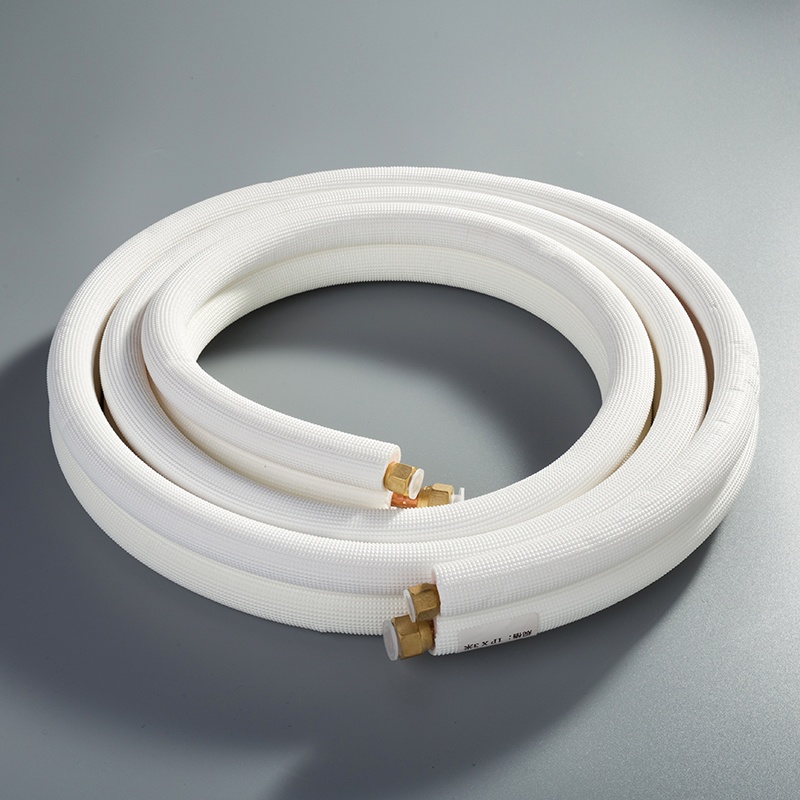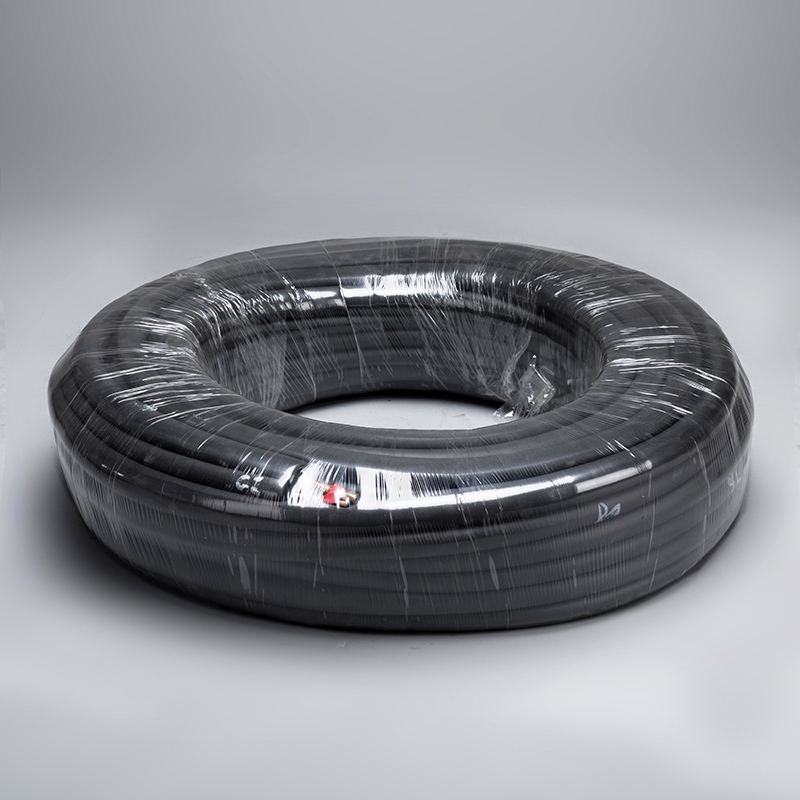What to Do If Your AC Copper Pipes Are Frozen

What to do if your air conditioner copper pipes are frozen
Discovering frozen AC copper pipes is more than just a minor inconvenience; it signals significant issues that can disrupt your cooling system. Ice buildup on your air conditioner not only reduces its efficiency but also poses a risk of damage to the unit itself. Addressing this common problem promptly is crucial to prevent further complications and ensure optimal performance of your AC system.
Identifying the Problem

When your air conditioner's copper pipes freeze, it can lead to significant issues affecting its performance. Discovering frozen AC copper pipes is a common occurrence, especially in regions with hot climates like Florida. If you notice that your AC is running but not cooling your home effectively, it might be a sign of frozen pipes.
Symptoms of Frozen AC Copper Pipes
Reduced Cooling Efficiency
A clear indication of frozen AC copper pipes is when your air conditioner struggles to cool your space efficiently despite running.
Visible Ice on Pipes
One of the most obvious signs of frozen AC copper pipes is the presence of ice buildup on the exterior of the pipes.
Unusual Noises from the AC Unit
If you hear strange noises coming from your AC unit while it's operating, it could be due to the stress caused by frozen copper pipes.
Immediate Actions to Take
Turn Off the AC
Immediately switch off your air conditioner to prevent further cooling and exacerbating the freezing issue.
Switch the Fan to ON Mode
By setting the fan mode to ON, warm air will circulate over the frozen components, aiding in melting the ice within a few hours.
Inspect the Unit
After turning off the system, check for any visible blockages or accumulations that might be contributing to the freezing of the copper pipes.
Allow the Ice to Melt
Letting the ice melt naturally is crucial; avoid using methods like a propane torch that can pose fire risks. Opt for safer options like a space heater or heat lamp for thawing.
Understanding the Causes
When AC copper pipes freeze, it's essential to identify the root causes to prevent future occurrences. Understanding why your air conditioner experiences this issue can help you take proactive steps to maintain its efficiency and longevity.
Common Reasons for Freezing
Low Refrigerant Levels
Inadequate refrigerant levels in your AC system can lead to temperature imbalances, causing the coils to freeze over time.
Poor Airflow
Restricted airflow due to clogged filters or blocked vents can disrupt the heat exchange process, leading to ice formation on the copper pipes.
Thermostat Issues
Malfunctioning thermostats may inaccurately control the cooling cycle, resulting in prolonged operation and potential freezing of the coils.
Dirty Evaporator Coil
A dirty evaporator coil reduces heat absorption efficiency, causing moisture in the air to freeze on the coil's surface.
How to Diagnose the Cause
To pinpoint the exact reason behind your frozen AC copper pipes, a systematic approach is necessary. By examining specific components of your air conditioning system, you can effectively troubleshoot and address the underlying issues.
Checking Refrigerant Levels
Regularly monitor refrigerant levels using a pressure gauge to ensure they are within optimal ranges for proper cooling operation.
Inspecting Air Filters and Vents
Periodically check and clean air filters to maintain unrestricted airflow through the system, preventing ice buildup on the copper pipes.
Evaluating Thermostat Settings
Verify that your thermostat settings align with your comfort needs and adjust them if necessary to prevent overcooling that could lead to freezing.
Examining the Evaporator Coil
Inspect the evaporator coil for dirt or debris accumulation, ensuring it is clean and unobstructed for efficient heat transfer and humidity control.
Step-by-Step Solutions

Addressing Low Refrigerant Levels
To address low refrigerant levels in your air conditioning system, follow these steps:
How to Refill Refrigerant
Purchase refrigerant suitable for your AC unit.
Turn off the system and locate the refrigerant refill valve.
Attach the refill hose securely to the valve.
Slowly inject the refrigerant into the system until it reaches the recommended level.
When to Call a Professional
If you are unsure about refilling refrigerant, or if you suspect a leak, contact an HVAC technician immediately.
Improving Airflow
Enhancing airflow within your AC system is essential for preventing frozen copper pipes. Here's what you can do:
Cleaning or Replacing Air Filters
Locate the air filter compartment in your AC unit.
Remove the dirty filter and inspect it for debris.
Clean reusable filters with water or replace disposable ones with new ones.
Reinstall the filter securely back into place.
Ensuring Vents are Unblocked
Check all supply and return air vents throughout your home.
Remove any obstructions like furniture or curtains blocking airflow.
Ensure vents are open and unobstructed to promote proper circulation of air.
Fixing Thermostat Issues
Correcting thermostat problems can help prevent future freezing of copper pipes in your AC unit:
Calibrating the Thermostat
Access your thermostat settings and ensure they match your comfort preferences.
Use a thermometer to verify temperature accuracy and adjust settings if needed.
Replacing Faulty Thermostats
If calibrating doesn't resolve issues, consider replacing a malfunctioning thermostat.
Consult an HVAC professional for assistance in selecting and installing a new thermostat.
Cleaning the Evaporator Coil
To maintain your air conditioner's efficiency and prevent future freezing issues, cleaning the evaporator coil is essential. Neglecting this component can lead to reduced cooling performance and potential system breakdowns. While a thorough cleaning may resolve the issue, understanding and addressing the root causes often requires professional expertise.
How to Clean the Coil
Begin by turning off your air conditioner to ensure safety during maintenance.
Locate the access panel on your indoor unit to reach the evaporator coil.
Gently remove any visible dust or debris using a soft brush or vacuum cleaner.
Mix a solution of mild detergent and warm water to clean the coil surface carefully.
Use a soft cloth or brush to wipe down the coil, ensuring all dirt and grime are removed.
Rinse the coil with clean water and allow it to dry completely before reassembling.
When to Seek Professional Help
If you encounter challenges during the cleaning process or suspect underlying issues beyond dirt accumulation, it's advisable to seek professional assistance. HVAC technicians possess the expertise and tools necessary to diagnose complex problems accurately. If your air conditioner is frozen due to low refrigerant levels, poor airflow, thermostat malfunctions, or dirty coils, your unit needs to be serviced by an expert.
Preventive Measures
Regular Maintenance Tips
Scheduling Routine Inspections
Plan regular inspections to ensure your air conditioning system operates efficiently.
Inspect the evaporator coils, refrigerant levels, and thermostat settings during each maintenance check.
Schedule professional services annually to prevent potential issues and maintain optimal performance.
Keeping the Unit Clean
Maintain a clean environment around your AC unit to prevent dirt and debris buildup.
Regularly clean the exterior of the unit using a damp cloth to remove dust and grime.
Use Foam Cleaner every three months to disinfect evaporator coils effectively.
Professional Services
Benefits of Professional Maintenance
Professional HVAC technicians offer expertise in diagnosing and resolving complex AC issues.
Regular maintenance by professionals ensures your system operates efficiently and prolongs its lifespan.
Opting for professional services guarantees thorough cleaning with products like Evaporator Fresh Coil Cleaner.
How to Choose a Reliable Service Provider
Research local HVAC companies with positive reviews and certifications for quality service.
Inquire about service packages that include routine maintenance visits tailored to your needs.
Ensure the service provider offers emergency assistance for unexpected AC breakdowns.
Product Information:
Evaporator Fresh Coil Cleaner: This heavy-duty foam detergent has a pleasant lemon scent and can be used to disinfect and clean evaporator coils and drain pans to produce mold-free, clean surfaces for ideal performance.
Foam Cleaner: Our foam cleaner is recommended for cleaning evaporator coils every 3 months or as needed, providing self-rinsing, fast-breaking foam that can be sprayed upside down.
Air Conditioner Maintenance: Air conditioners need yearly maintenance to maintain proper performance; with proper maintenance, your air conditioning and heating equipment will work more economically and be more dependable for years to come.
In conclusion, addressing frozen AC copper pipes is vital for maintaining your air conditioning system's efficiency and longevity. Regular maintenance plays a crucial role in preventing freezing issues and ensuring optimal performance. If you notice any symptoms of frozen pipes, take immediate action to prevent further damage. Remember, professional services are available to assist with complex AC issues and ensure your system operates smoothly.
See Also
Uncover the Power of Copper Pipes for AC Efficiency
Exploring the Wonders of Copper Pipes in Air Conditioning
The Benefits of Selecting Copper Pipes for AC


